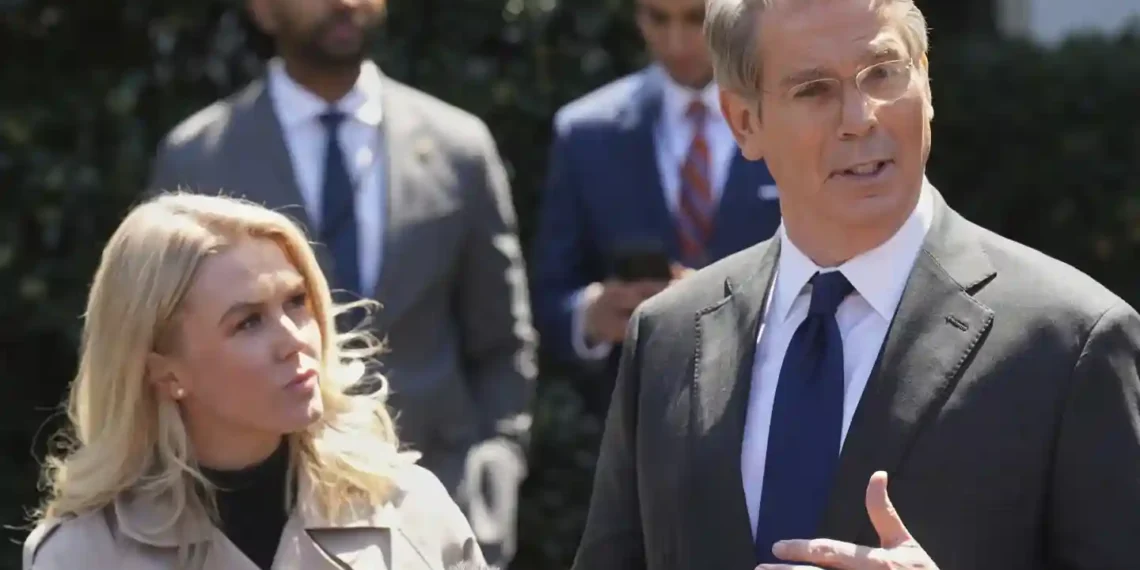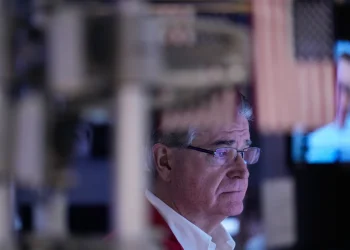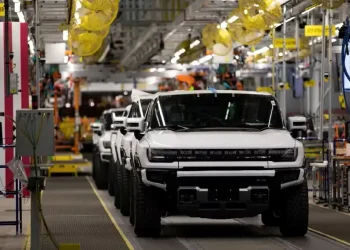Trump Pauses Tariffs on Most Nations, Raises Taxes on Chinese Imports Amid Market Turmoil
In a dramatic shift, President Donald Trump announced Wednesday that he would temporarily pause tariffs on most nations for 90 days, as the global market showed signs of distress. However, the president didn’t back down on his trade war with China, raising taxes on Chinese imports to a staggering 125%.
This move, aimed at reducing the escalating tensions between the U.S. and other nations, refocused the conflict almost entirely on China. The decision followed a rough stretch in the stock market, which spiked by 9.5% after the announcement, signaling a potential easing of the trade war. However, the road ahead remains uncertain, with ongoing country-specific negotiations expected.
The decision to back off tariffs for the time being comes amidst mounting pressure from volatile financial markets. For weeks, stocks had been in freefall, while businesses warned of poor sales and rising prices, contributing to growing fears of an economic downturn. The trade war was starting to pinch consumers, with many watching their retirement savings shrink.
Despite some administration officials suggesting the pause had been part of the plan all along, it’s clear that market dynamics were a big factor in Trump’s decision. By early afternoon, Trump took to Truth Social, explaining that more than 75 countries had approached the U.S. for trade talks, prompting him to authorize a “90-day PAUSE,” lowering the tariff rate to 10% for those countries.
Trump also spoke to reporters, admitting that the stock market declines had unsettled many people, which he said prompted him to reassess his tariff strategy. “Nothing’s over yet,” Trump added, signaling that the fight was far from finished, even as he described the bond market as “beautiful” after a rebound.
The U.S. president emphasized that this pause was a response to requests for negotiations, not the market’s turmoil. Yet, Treasury Secretary Scott Bessent later contradicted Trump, attributing the pause to the outreach from other nations, not market sell-offs.
For countries like Canada and Mexico, the tariffs remain in place, with certain sectors like fentanyl prevention driving the decisions. Meanwhile, tariffs on the European Union, Japan, and South Korea were set lower than before, but still higher than the standard 10% rate. This decision reflects Trump’s strategic approach to manage both economic relations and geopolitical pressures.
Before the announcement, the stock market had been grappling with uncertainty, compounded by falling bond prices and rising interest rates. The decision to reduce tariffs for 90 days provided a glimmer of hope for markets, offering a potential path toward de-escalation. However, experts caution that the situation remains fluid, and a sudden shift in tariffs could still send the markets into a tailspin.
The change in direction also carries political consequences, as Trump has faced increasing criticism over the economic fallout of his tariffs. Business leaders, including Delta Airlines CEO Ed Bastian, warned that the unpredictability of these trade measures was hampering long-term planning and hurting corporate confidence. Bastian, who had once predicted the best financial year in Delta’s history, adjusted his outlook, citing the economic uncertainty caused by ongoing tariff tensions.
The 90-day tariff pause is only the beginning of what could be months of intensive negotiations. As Secretary Bessent noted, individual discussions with countries would be “bespoke,” tailoring each deal to specific needs and concerns. Japan, South Korea, and India have already shown interest in joining the talks, but challenges remain.
The overall global impact of Trump’s tariffs continues to unfold. The head of the World Trade Organization, Ngozi Okonjo-Iweala, warned that the U.S.-China trade war could severely disrupt the global economy, potentially fragmenting global trade along political lines. It remains to be seen whether Trump’s strategy of unilateral tariff imposition will lead to lasting trade agreements or further destabilize the global market.
While Trump’s pause may have offered a temporary reprieve, the long-term effects of these tariffs are far from clear. Economists continue to warn that the ongoing trade war could push the global economy toward a recession, with inflation and rising prices putting pressure on everyday Americans.
As businesses brace for more uncertainty, Trump’s ability to navigate these delicate negotiations will be critical to his economic legacy. However, the question remains: will his approach to trade war escalation lead to a lasting resolution, or will it drive further instability in both the U.S. and global markets? Only time will tell.
This article was rewritten by JournosNews.com based on verified reporting from trusted sources. The content has been independently reviewed, fact-checked, and edited for accuracy, neutrality, tone, and global readability in accordance with Google News and AdSense standards.
All opinions, quotes, or statements from contributors, experts, or sourced organizations do not necessarily reflect the views of JournosNews.com. JournosNews.com maintains full editorial independence from any external funders, sponsors, or organizations.
Stay informed with JournosNews.com — your trusted source for verified global reporting and in-depth analysis. Follow us on Google News, BlueSky, and X for real-time updates.














